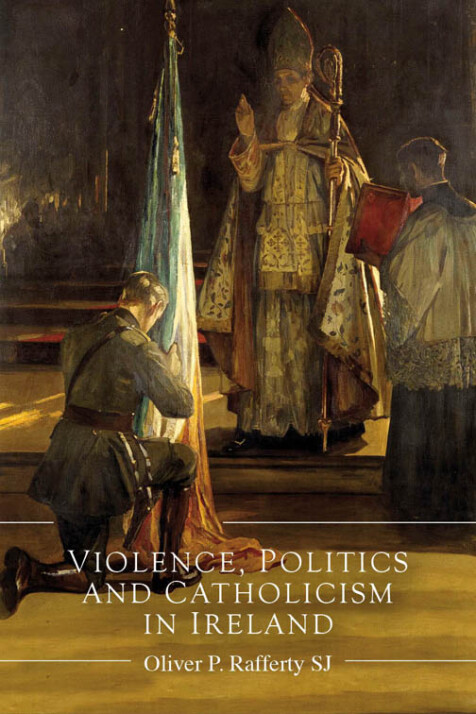Violence, Politics and Catholicism in Ireland
Oliver P. Rafferty SJ
‘Oliver Rafferty has brought together some of his most interesting work, old and new, in an absorbing collection of essays. The collection’s unifying theme will not be a surprise to anyone previously familiar with Rafferty’s work … How the Irish Catholic Church interacted with the state, with politics and with political violence in the modern era is a potentially vast question that has multiple complicated answers. To Rafferty’s credit, he alights on numerous fascinating and varied case studies in his quest to provide some of these answers’, Sarah Roddy, Irish Theological Quarterly (February 2017).
‘The essay on the Irish Catholic Church and the second World War is very thought provoking, especially on sectarianism in Northern Ireland, official and unofficial … The final essay, Embedded Memory and the Churches in Ireland, is both theoretical and historical, and very profound. This very well-written, closely footnoted and very scholarly book will provoke many a debate’, Frank MacGabhann, Irish Times (February 2017).
‘A valuable volume … a scholarly and thoughtful set of analyses and it brings to a difficult subject the insights and acumen of an erudite scholar’, Richard English, International Journal for the Study of the Christian Church (2016).
‘The central theme of this book, by the distinguished Irish Jesuit-historian Oliver Rafferty, is that for the last 200 years the institutional Catholic Church in Ireland has followed public opinion and bent its “timeless and transcendental” moral stance against political violence so as “not to lose the affections and support of the people as a whole” … The introductory essay is a masterful analysis of how the Church responded to the problem of the “disposition to violence” exhibited by its adherents from 1798–1998 … Two other essays of special merit deal respectively with “Catholic chaplains to the British forces in the First World War” and with “The Catholic Church in Ireland and the Second World War” … Rafferty writes that “There is no cheap forgiveness, but for the Christian there can be no other path”. That uncompromising conclusion is typical of this author. He does not pull his punches anywhere in this provocative book’, Felix Larkin, The Irish Catholic (May 2016).
‘Fr Rafferty has made abundant use of archival material, much of it not hitherto used by historians, to make available this very valuable and informative account of Irish Catholic responses to various situations and crises connected with Britain in the nineteenth and twentieth centuries’, Ambrose Macaulay, The Furrow (July/August 2016).

